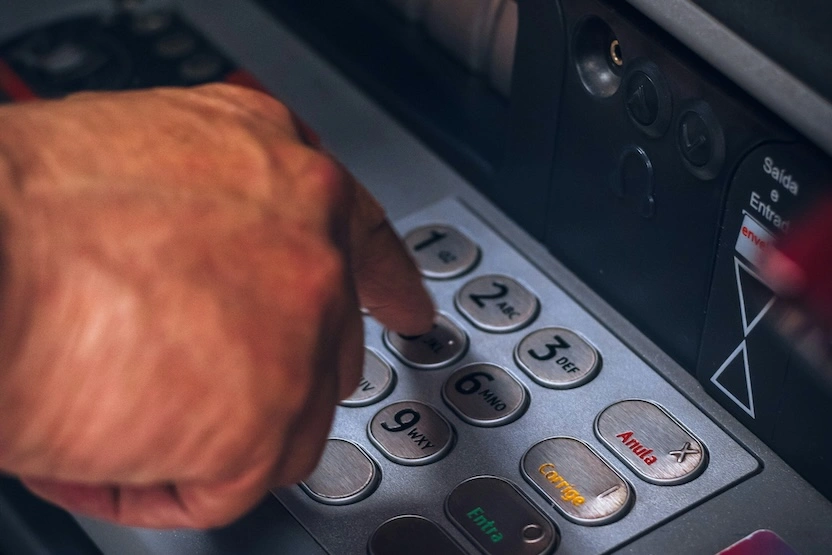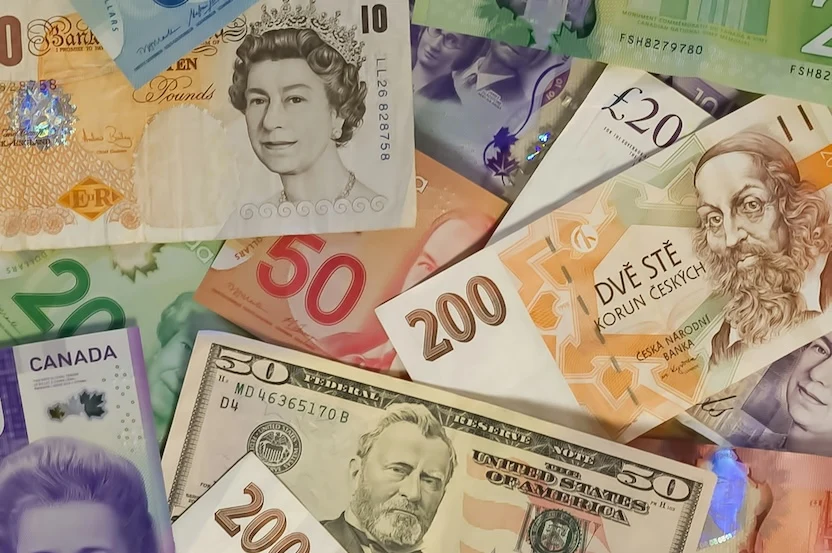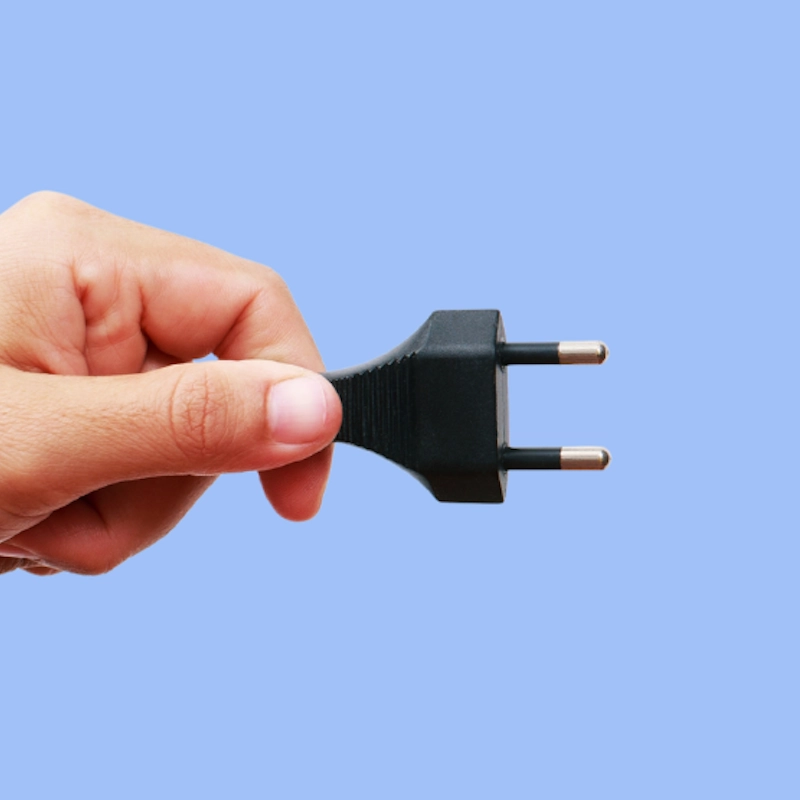
Can You Use Your Debit Card Abroad? 2026 Updates
Sarah Pardi - January 16, 2026
Home > Travel Safety & Health > Can You Use Your Debit Card Abroad? 2026 Updates
Share this post
Traveling has changed a lot in the last 30, 20, even 10 years. In the past, traveler's checks and cash were the gold standard. Today? Debit and credit are the norm.
But does that norm translate overseas?
When getting ready to travel abroad, it's important to know how you're going to be able to pay for things on your upcoming trip.
Whether it's excursions and accommodations or little things like drinks and souvenirs, knowing the payment options ahead of time will save you from potential hiccups once you're already abroad.
In this guide, we are going to take a look at whether or not you can use your debit or credit card abroad, as well as give expert tips about currency exchange and how to prepare.
Using your debit card in another country
Generally speaking, most debit cards can be used internationally.
With that being said, some countries or locations may still be cash only. In the case of your finances, it's best not to assume that your destination will accept your card. Always find out for sure ahead of time.
In some cases, it's possible that only certain cards are accepted, or that your card doesn't allow for foreign transactions.
Because of this, you should check with your bank or credit union before you travel.
You can also see whether or not your card allows for foreign transactions by reviewing the frequently asked questions, the terms of your official contract or account, or by contacting customer support.
If you can use your card overseas (which, in most cases, you should be able to), know that there may be per-transaction fees.
Heading overseas?
Insure your trip for peak peace of mind ??♀️
Debit card fees abroad
While you may be able to use your debit card abroad (especially if it's a worldwide name like Visa), it doesn't mean it won't cost you.
Depending on your bank and contract, there may be a fee each time you use your card internationally. This fee can be a flat rate, a percentage, or sometimes both.
According to Intuit, these fees can be around 3%, but always check with your bank, as they may be lower or higher. There isn't a standardized fee, so it really will depend.
It's also worth noting that some debit cards don't have any fees internationally at all.
If that's the case, you'll still need to pay attention to exchange rates if the currency abroad is different than your currency back home.

ATM fees abroad
In addition to transaction fees, you will want to check to see whether or not your debit card will incur ATM fees while overseas.
Per PayPal, ATM fees abroad typically range from 1-3% of the amount withdrawn.
If your debit card transaction fees are high internationally, it may be more cost-effective to do a one-time, larger cash withdrawal from an ATM instead of using your debit card for each and every transaction. Keep in mind that your debit card may not work at every ATM.
How to avoid ATM fees abroad
It may be possible to find ATMs abroad that have no fees or lower fees. Using a tool like Visa's Global ATM Locator (if you hold a Visa debit card) can help you find Visa ATMs near you.
Countries where you can use a debit card
While the average debit card is generally accepted in most countries, there may be locations where you cannot use it.
For instance, some financial institutions may have banned debit card usage in specific countries. This sometimes happens when there are higher levels of fraudulent transactions in a specific place, but there are other reasons this happens, too.
Your credit union or bank should be able to provide you with a list of places where you won't be able to use your debit card.
With all of that being said, debit card usage is common in many popular travel destinations like France, Italy, and the UK.
Keep in mind that in more rural locations, or at specific events like flea markets, festivals, or food stands, cash may be required, so it's always a good idea to keep a little bit of the local currency on you while traveling.
Carrying cash when traveling abroad
It's always a good idea to carry a little bit of cash (in the local currency) when traveling internationally.
Even when debit and credit cards are accepted, there's always a chance that a technical issue could happen, or worse, your debit card becomes locked, lost, or stolen.

Where to get money in another currency
There are a few options when it comes to getting foreign cash for your trip overseas.
ATMs. Once abroad, ATMs make it easy to withdraw cash in the local currency, but keep the potential fees mentioned above in mind. In addition to ATM service fees, there will also be an exchange rate.
Currency exchange with your bank. Before heading abroad, your bank may be able to exchange currency for you. Make sure you ask about this well in advance, as many local branches do not carry international currencies, meaning they may have to special order them for you.
Currency exchange while abroad. At your final destination, you'll likely find currency exchange services, especially in tourist areas. Exchange rates may vary from provider to provider, so always check the rate before making your transaction, as well as the business's reviews.
Currency exchange at the airport. In both your country of departure and your final destination, the international airport will likely have a currency exchange counter or kiosk. While these options are very convenient, keep in mind that the exchange rates can be significantly higher than those of other services. You really pay for convenience on this one.
Best practices for using your debit card abroad
Research before you go
Check with your bank or credit union about what the international fees are for your specific card and which countries it will work in.
In addition to that, it's helpful to read up on currency rates. A quick Google search will tell you how your local currency compares to the currency in your destination, as well as what exchange rates you can expect to see.
Notify your financial institution
Before traveling internationally, let your bank know that you will be abroad. Nowadays, some banks have automated systems that freeze your accounts if they detect suspicious activity, and purchases abroad can be seen as suspicious. If you notify your bank about your travel plans ahead of time, they can add a note to your account preventing it from freezing.
Some banks even have mobile apps that allow you to set up travel notifications yourself. This way, when your bank sees an unusual transaction (such as a car rental abroad), they'll check to see if you've added any travel notes to your account before locking your card.

Get charged in the local currency
If given the option, opt for being charged in the local currency when using your card.
If you choose to pay in your home currency (whatever the currency of your debit card account is), you may face additional hefty currency conversion charges.
This is because the business you're purchasing through will need to exchange the currency itself, and they can charge you a big fee.
Carry some cash with you
While subject to exchange rates, carrying cash on you is always a good idea while traveling. Whether payment systems are down due to a technological glitch or that small boulangerie on the corner is cash-only, it can be a big relief knowing you have a backup, just in case.
Have your bank's contact number on hand
In case of any issues, make sure you have your bank's international customer support number on hand. Whether your account gets frozen, you lose your card, or it's simply not working, having the customer support number right where you are, when you need it, is always a smart idea.
What is the difference between debit cards and credit cards?
In some countries, debit cards and credit cards are both widely used. In others, that may not be the case.
Debit cards give you access to real, liquid funds. This is the cash that you physically have in your checking or savings account. When you use your debit card, your money is transferred directly out of your bank account, meaning it is spent and gone.
Credit cards, on the other hand, allow you to borrow funds that you do not have. This happens through a separate account referred to as "a line of credit." Credit cards have different perks, limits, and agreements based on several factors, like the company's offerings and the cardholder's financial history.
After borrowing money (through purchasing with a credit card), cardholders must pay that money back, typically within a certain timeframe. Depending on the contract, cardholders may have to pay interest on the borrowed amount.
If you are traveling internationally, make sure to check with your bank and/or credit card company about where you can use your card and what fees you can expect to pay.
If you have a credit card, you may also want to check your member perks, such as cashback incentives, so you know whether or not they will still apply while abroad.
Related posts
Upcoming travels ? Get Insured !
Find the right insurance for your trip by using our powerful comparison tool!
Sarah Pardi - February 26, 2026
Sarah Pardi - February 19, 2026
Sarah Pardi - February 13, 2026
Sarah Pardi - February 12, 2026





